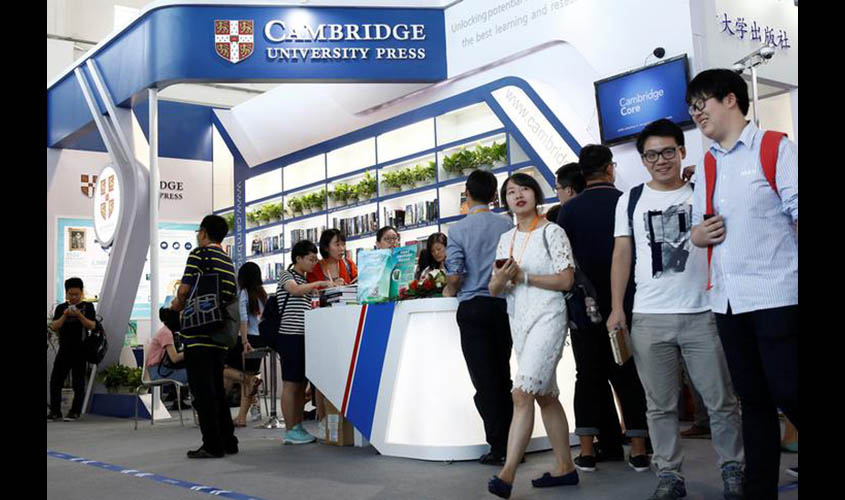China made a wrong move in attempting to ban 315 academic articles from the China Quarterly (CQ), published by the Cambridge University Press (CUP). The oldest printing and publishing house in the world, CUP was established in 1584. CUP received instruction from a Chinese import agency to block controversial articles about Tibet, the Dalai Lama, Taiwan, the 1989 Tiananmen Square massacre, the Chinese democracy movement and the Cultural Revolution, for Chinese users. This was an unprecedented assault on academic freedom. Surprising everyone, the CUP temporarily suspended the articles, without consulting Tim Pringle, the editor of CQ. An international furore from the global academic community ensued and China’s authoritarian censorship was condemned globally. It seems the CUP was concerned that the Chinese authorities had threatened to block the entire catalogue of CUP publications. After intervention from CQ and pressure from international professors and media, academic freedom prevailed and the articles were immediately reinstated. In a statement, the CUP said, “we will not change the nature of our publishing to make content acceptable in China”. The CUP has lost some credibility for its initial response, but was applauded globally for the re-posting; including praise from Chinese intellectuals, who went public on Weibo, only to have their posts mysteriously erased. Beijing does not appear to be embarrassed by its intent to obliterate knowledge, history and opinions, or by the hue and cry against its censorious practices. This came on the heels of the Hong Kong Book Fair, where the usual controversial titles were few and far between. The disappearance of a number of booksellers has taken its toll on the more adventurous participants at the fair, who are now afraid of upsetting the authorities in Beijing. It is feared that the ultra-sensitive Communist Party is attempting to silence or restrict rebellious voices through policy; allegedly cracking down by blocking VPNs that access internet voices on YouTube, Twitter and Facebook, western literature and press, NGOs and academia. China signed up to the International Publishers Association in 2016. The latest censorship is a contradiction to the principles of freedom to publish. The Beijing Book Fair took place this week, with 2,400 exhibitors from 89 countries. Iran was the guest of honour; Chinese Iranologists translated 23 Iranian masterpieces into Chinese, including works by Hafez and Rumi. Western contribution is more limited and safe topics are better for business: lifestyle, homemaking, cooking and children’s books. Meanwhile, in an embarrassment for the UK, the EU anti-fraud agency, OLAF has accused HMRC, the British customs agency, of turning a blind eye to a serious fraud scam that permitted Chinese merchandise to flood Europe at a fraction of its production cost, allegedly depriving the EU of nearly 2 billion euros in lost duties. EU investigators claim the fraud scheme is ongoing and the UK has failed to open a criminal investigation, sparking an impediment to the forthcoming Brexit negotiations. Mark Field, UK’s Minister for Asia and the Pacific is the first Minister of State to visit China since the 2017 election, arriving in Beijing on 22 August for high level talks on trade and investment, human rights, regional security and stopping the continuing illegal wildlife trade. UK hopes to grow the £16.7 billion goods that were exported to China in 2016. The timing is interesting since the IMF has said that China’s debt mountain could ignite a global financial collapse. Mark Wallace, the brave and perceptive executive editor of the conservative website ConservativeHome, has cautioned against a possible UK compromise between trade, independence and morality. He wrote, “We (UK) must neither become a supplier of the tools of repression (as we have wrongly done for Saudi Arabia), nor become a consumer of Chinese snooping and espionage. In terms of the latter, every care must be taken that the Chinese state does not have even the slightest backdoor into our telecoms system or lever of control over our energy infrastructure. It (China) is notably keen to fund and build elements of both.” Now that China has achieved global economic and political significance, almost every decision made by western governments and NATO members relates back in some way to China. Every industry and political leader has a responsibility to understand the long-term geopolitical consequences of giving in to balance the books or giving away too much control of a national asset.

